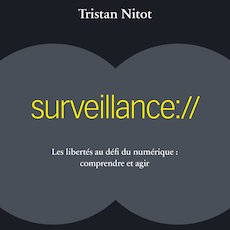
As you may have seen, Mozilla Labs has recently announced Jetpack:
Jetpack is an API for allowing you to write Firefox add-ons using the web technologies you already know.
In short, the goal of Jetpack is to enable Web developers to create extensions for Firefox. There are already roughly 8,000 Extension developers who have built 12,000 add-ons. It's a lot, but it could be a lot more if we could find ways to enable people who build Websites to create more extensions.
What does Jetpack have to do with Generativity and generative technologies? Well, the Web is already a generative technology. When it was invented, Tim Berners-Lee and his team did not envision what it would become. People who have invented innovative Web sites and services did not have to ask them permission to invent them. Actually, the Web was invented on top of the Internet and the IP protocol. Tim Berners-Lee did not seek permission from those who invented the Internet nor those who deployed it (ISPs and network operators). This is exactly what makes the Net and the Web generative technologies: people could invent new things on top of them without having to ask permission.
Firefox add-ons are of the same nature: if you want to have a different browser, you don't have to ask Mozilla to build a specific version of Firefox for you. You can build your own add-on. Now building an add-on is quite easy compared to contributing core Gecko code, but it can be made easier. That's what Jetpack is aiming at. In short, enabling more people to hack.
In my recent article about generativity, I quoted Jonathan Zittrain about the 5 things that make technologies generative. #3 was ease of mastery, and this is exactly where Jetpack is good. It's actually lowering the barrier to entry.
It's also acting on item #5, transferability, as explained by the Jetpack announcement:
from a user perspective, Jetpack will allow new features to be added to the browser without a restart or compatibility issues, resulting in little to no disruption to the online experience.
By making the user experience better (no restart needed, less compatibility issues), Jetpack is making Firefox better and more generative, because innovations built with it will be more transferable.
Let's also talk about the 3 remaining items listed by Zittrain:
- 1 : leverage: Jetpack leverages the existing Web technologies (HTML, CSS and JS+DOM) and applications (via their APIs)
- 2 : adaptability: add-ons are already used in many different fileds, and I expect Jetpack extensions just in the same way
- 4 : accessibility: to use these technologies, all you need is an Internet-connected computer that runs Firefox (so you can run Windows, OS X or Linux), which is a free download.
To sum things up, Jetpack is yet another demonstration of what Mozilla does to make the Web Browser even more generative.






1 réactions
1 De Cédric - 25/05/2009, 11:11
I don't know if it was reported, but since the announcement, the API design page is not available... So for the moment I don't see how to test it properly